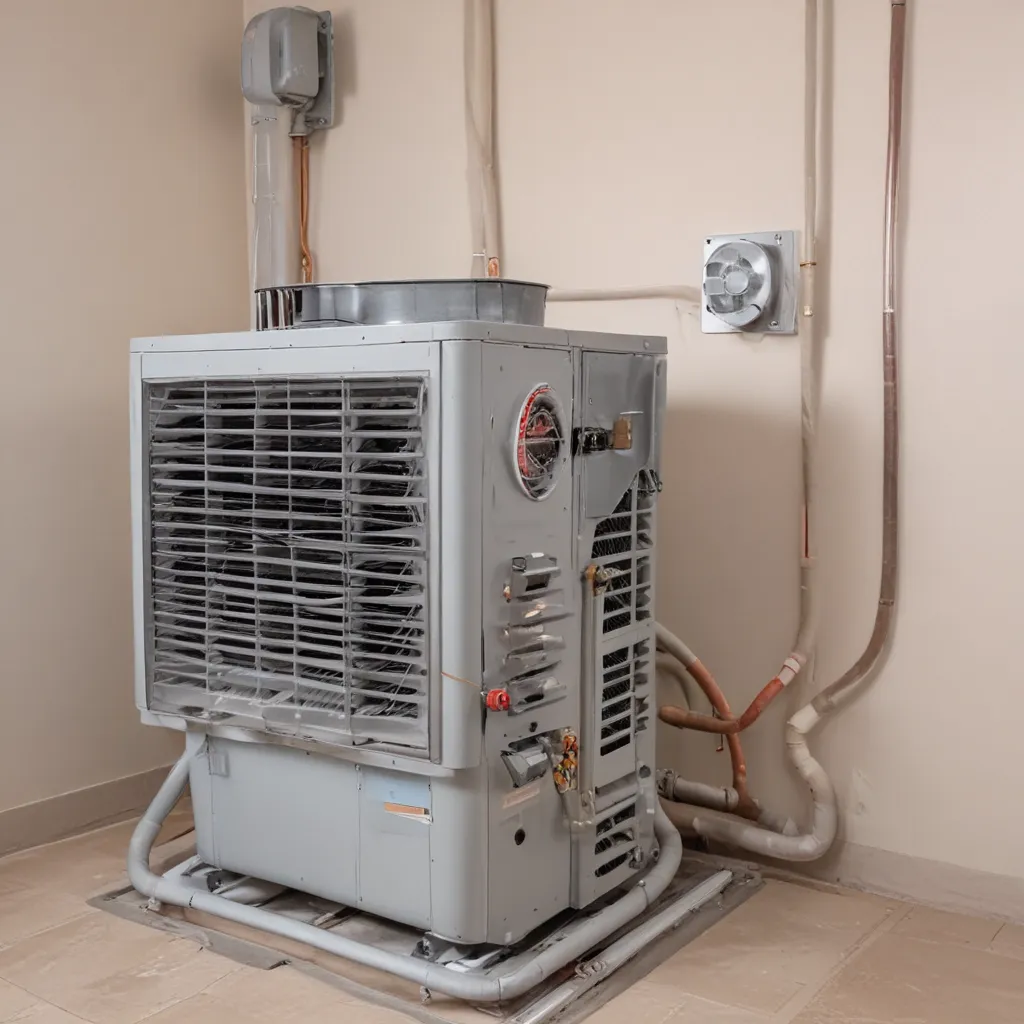
As an experienced HVAC specialist, I’m excited to share insights on the benefits and drawbacks of geothermal technology for your heating and cooling needs. Geothermal systems have become an increasingly popular alternative to traditional air conditioners and furnaces, offering homeowners and businesses a more efficient and environmentally-friendly way to regulate indoor temperatures.
The Advantages of Geothermal HVAC
Long-term Cost Savings: One of the primary advantages of geothermal heating and cooling is the potential for significant long-term cost savings. Geothermal systems are highly energy-efficient, typically achieving 300-600% efficiency compared to the 70-90% efficiency of traditional furnaces and boilers. This translates to dramatically reduced monthly utility bills, with homeowners often saving 30-70% on their heating and cooling costs. While the upfront installation costs may be higher, the lifetime operational savings often make geothermal a wise long-term investment.
Minimal Maintenance Requirements: Geothermal systems are built to last, with ground loops that can operate for over 50 years with little to no maintenance. Compared to traditional HVAC equipment that requires annual tune-ups and periodic part replacements, geothermal systems have remarkably low upkeep costs. The only component likely to need replacement over time is the heat pump, which can be swapped out for around $1,500-$2,500 per ton – a fraction of the cost of a full HVAC system replacement.
Eco-Friendly Operation: Geothermal heating and cooling is an exceptionally green technology, producing 75-85% less carbon dioxide emissions than fossil fuel-based systems. By harnessing the stable temperatures of the earth, geothermal systems eliminate the need to burn oil, gas, or other polluting fuels. This makes them an ideal choice for environmentally-conscious homeowners looking to reduce their carbon footprint.
Unobtrusive Design: Unlike traditional HVAC equipment, geothermal systems have a much more discreet profile. The ground loops are buried underground, and the only visible component is the small heat pump unit placed indoors, usually in the basement or garage. This helps maintain the aesthetic appeal of your property without unsightly outdoor units or propane tanks.
Consistent Year-Round Performance: Geothermal systems excel at maintaining comfort regardless of outdoor temperature fluctuations. The stable underground temperatures provide a reliable heat source in the winter and a heat sink for cooling in the summer. This allows geothermal to operate efficiently in a wide range of climates, from frigid winters to scorching summers.
Improved Indoor Air Quality: Geothermal systems do not produce any direct emissions or combustion byproducts, eliminating the risk of carbon monoxide leaks or other indoor air quality issues associated with traditional furnaces and boilers. This creates a healthier living environment, especially for those with respiratory sensitivities.
Potential for Increased Home Value: Upgrading to an energy-efficient geothermal system can be an attractive selling point that may increase the overall value of your home. Homebuyers often view geothermal as a desirable, future-proof HVAC solution that reduces long-term operating costs.
The Drawbacks of Geothermal HVAC
Higher Upfront Costs: The primary drawback of geothermal heating and cooling is the significant upfront investment required for installation. Geothermal systems typically cost between $30,000 and $50,000, including the ground loop drilling or trenching and the heat pump unit. This is substantially more than the $2,000 to $6,000 price tag for a traditional furnace or $3,400 to $6,000 for a central air conditioner.
Extensive Installation Process: Properly installing a geothermal system is a complex process that often requires specialized equipment and skilled technicians. Depending on the size of your property and the type of ground loop system needed, the installation can be quite invasive, often requiring heavy machinery to dig trenches or bore vertical wells. This can disrupt your landscaping and necessitate careful coordination with your HVAC contractor.
Reliance on Electricity: While geothermal systems are highly efficient, they still require electricity to power the heat pump and circulate the refrigerant. Homeowners will continue to pay monthly utility bills, though the overall energy usage and costs will be significantly lower than with traditional heating and cooling equipment. To achieve a truly off-grid, carbon-neutral solution, geothermal can be paired with on-site renewable energy sources like solar power.
Limited DIY Potential: Geothermal installations are not typically suitable for DIY projects. The intricate design, specialized equipment, and complex permitting process involved make it essential to work with qualified, experienced HVAC contractors who can double-check that the system is properly sized and installed for maximum efficiency and longevity.
Site Limitations: While geothermal can be a viable option for many properties, some homes may not be well-suited due to limited available land, soil conditions, or access to water sources (for open-loop systems). A thorough site evaluation is necessary to determine the feasibility and optimal geothermal system configuration.
Weighing the Pros and Cons
Ultimately, whether geothermal heating and cooling is the right choice for your home or business depends on carefully evaluating the unique factors of your property, energy needs, and financial situation. The higher upfront costs may be a deterrent for some, but the potential for substantial long-term savings, environmental benefits, and increased home value make geothermal a compelling option worth considering.
At US Air Contractors, our team of experienced HVAC specialists can help you assess the viability of a geothermal system for your property and provide guidance on navigating the installation process. We’ll work closely with you to understand your heating, cooling, and indoor air quality requirements, and then recommend the most efficient and cost-effective solution – whether that’s a geothermal heat pump, an air source heat pump, or a traditional furnace and air conditioner.
By exploring the latest advancements in HVAC technology and prioritizing energy efficiency, we’re committed to helping our clients achieve greater comfort, control, and cost savings. Contact us today to schedule a consultation and learn more about how geothermal or other innovative heating and cooling systems can benefit your home or business.
Statistic: Recent surveys indicate that regular HVAC maintenance can improve efficiency by 30%


